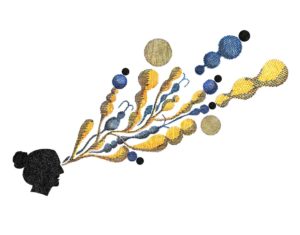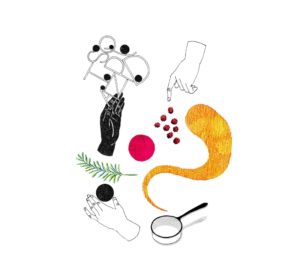This article was published more than 3 years ago.
For four years, the Narrative Hub initiative—a joint project by the Fund for Global Human Rights and JustLabs—has grappled with the challenges and opportunities of narrative change work. Working with human rights groups from Australia, Hungary, Mexico, and Venezuela, the team has explored research on narratives, imagined creative changes in their practice, and experimented with bringing those ideas to life.
In Narrative Spices: An Invitational Guide for Flavorful Human Rights, a new report out today, the Narrative Hub team reflects on its journey of experimentation, iteration, and innovation in the narrative space to offer a new kind of guide for human rights advocates interested in narrative change work.
 Instead of taking the prescriptive messaging guide approach to narrative change research, Narrative Spices is an invitation to self-reflection and creative practice. Rather than lay out a new set of rules for narrative change work, author Lucas Paulson invites practitioners to form their own unique, context-specific approach to narrative work through the personal and organizational processes that facilitate and nurture growth, exploration, and change.
Instead of taking the prescriptive messaging guide approach to narrative change research, Narrative Spices is an invitation to self-reflection and creative practice. Rather than lay out a new set of rules for narrative change work, author Lucas Paulson invites practitioners to form their own unique, context-specific approach to narrative work through the personal and organizational processes that facilitate and nurture growth, exploration, and change.
“The question we’re asking now is not: What are more effective narratives about human rights?,” says Paulson. “Instead, we’re asking: How do practitioners, capacity-builders/accompaniers, and funders work together to create conditions that encourage one another to reflect on, re-examine, and experiment with how we do our work?”
Just as the Narrative Hub’s 2019 report Be the Narrative: How Changing the Narrative Could Revolutionize What It Means to Do Human Rights offered a radical hope-based response to the wave of authoritarian populism, Narrative Spices is an action-oriented guide made to meet this moment of rapid, uncertain global transformation.
 Paulson presents six critical elements of narrative practice (or, as he calls them, spices). Through a combination of case studies, interviews, and deep reflection, he demonstrates how human rights practitioners can mix and match these elements (or spice blends) to create powerful, personally informed approaches to social change. But more than that, Paulson explores how practitioners can cultivate personal curiosity, exploration, and growth—habits that are key, he suggests, to re-examining the way you work and embodying your narrative.
Paulson presents six critical elements of narrative practice (or, as he calls them, spices). Through a combination of case studies, interviews, and deep reflection, he demonstrates how human rights practitioners can mix and match these elements (or spice blends) to create powerful, personally informed approaches to social change. But more than that, Paulson explores how practitioners can cultivate personal curiosity, exploration, and growth—habits that are key, he suggests, to re-examining the way you work and embodying your narrative.
Funding Narrative Change Work
The guide also contains important implications for funders looking to support groups exploring narrative work. James Savage, director of the Fund’s Enabling Environment program, accompanied the Narrative Hub team on their four-year journey. Along the way, his thinking about what it takes to effectively support narrative change work began to transform:
“We’ve learned that support for narrative work must go beyond providing resources, infrastructure, and a toolkit of technical assistance,” says Savage. “Activists also need the space and time to do the internal work—to reflect, to embrace fun and creativity, to experiment in weaving together their personal and professional narratives.”
For funders, that means investing in the process of narratives, not just the outcomes. “Funders need to offer reassurance, encouragement, and manifest that in their accompaniment, showing their comfort with uncertain outcomes, their flexibility when unpredictable issues or failures arise, and in a genuine curiosity for the learning this can bring,” says Savage. “If we can make these changes within the human rights movement, we could see narrative power growing in front of us.”


